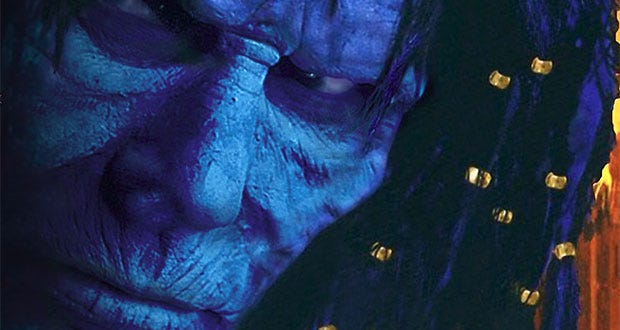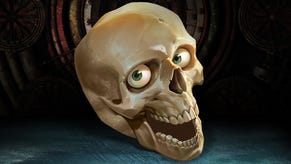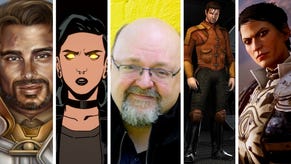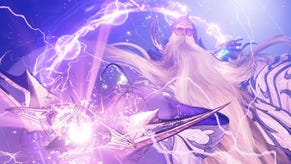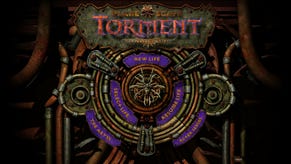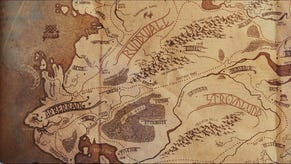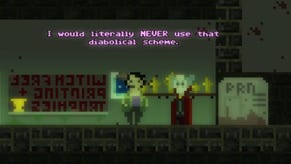Raised By Screens, chapter 17 - Planescape: Torment
A retrospective of torment
Raised by screens is an intermittent autobiography, structured around the PC games I played in my youth. Most instalments are currently only available to RPS subscribers, but I shall compile them somewhere once the series reaches its eventual end.
Some spoilers for Planescape: Torment's ending follow.
Too many games now, too many websites, too much happening each and every day. I mean only 'too much for me personally to keep pace with', not that this is inherently a poor state of things. I think about how I came to play Planescape: Torment, and how differently that might happen today.
I took a couple of years off PC games. A combination of too old a PC and an awkward, partial move into an alcohol-centric social life made games impossible on multiple fronts. Technologically, financially, and personally.
The first year of university was the most transformational year I've ever had, with the possible exception of 2013, the birth of my daughter. There is another gaming story I mean to tell from that first year, but have been reluctant to for reasons that would become clear if I ever did share it, and that is why this series has been on hiatus. Planescape: Torment happened after that. It happened after I went through a period of gaining vital self-awareness, then a brief period of not knowing who I was, followed by returning to my core essence but being healthier and a little more rounded with it.
Torment was a point of connection between my old self and my burgeoning new self. I'd been through a phase where owning a PC was something to be faintly ashamed of, I'd been through a PlayStation phase which was almost purely social - Tekken, primarily - and I'd reached the point where I wanted a PC again. I'd also begun to read PC Zone again, usually finding myself bamboozled by the games it talked about, disbelieving about the graphics in the 3D games it featured, and totally unclear about how best to spend the small amount of money I could dedicate to that hobby.
There were other games, and some of the games bear their own stories. Another time. This is about Planescape, a name I saw referred to in issue after issue, though I believe I missed the review itself. The game was a cause celebre for someone at that magazine, and whoever it was (I did not pay attention to writers' names back them) seemed to regularly plead for readers to play it. Other RPGs were sneered at, best-of round-ups always seemed to lead to Planescape, and it worked. Would such a thing be possible now - all these games, these websites, these tweets, and most of all, all these videos with all the answers?
It took a slow war of passionate attrition, convincing me over the course of half a year that I should spend my money on this thing I did not entirely understand. I had played Baldur's Gate. It was like Baldur's Gate, except it wasn't. That was all I knew.
The strangeness and boldness of its cover. A blue man, dreadlocked, scarred and scowling. It could be anything. I remember the shop assistant in Electronic Boutique frowning at it in confusion, clearly unaware of what it was, probably thinking it cheap and poor.
I remember staring at it on the bus, and this thing in my hands grew stranger and stranger as the forty-minute journey back to my mum's house wore on.
I felt at home almost immediately. I delighted in the dark oddness of awakening in a mortuary, being told by a talking skull that I was recently dead myself. I remembered feeling deeply unsettled by the mute, monstrous figures who patrolled that mortuary.
I fell for its mystery - the mystery of who I really was, the mystery of how much Morte knew, the mystery of how I should behave. I fell for Annah. I fell for believing I could help Ignus. I fell into believing that a game's story and writing was of infinitely greater importance than its action. I could bash buttons and kill men anywhere. This, though, was rare. I felt, for the first time, that games might be important, and not merely entertainment.
I fell too into an existential angst about how I should live my own life. Adulthood was calling me. I had no idea what to do, or who I should be. Adults knew everything, I still faintly believed. They did not know the confusions and the fear that characterised adolescents staring at the oncoming storm that was the rest of their life.
The Nameless One, steeped in regret, trying to help everyone, trying to do the right thing, and finding ruin, death and punishment instead, said otherwise. Said that no-one had figured this thing out.
How bittersweet, that ending. So much accomplished, such a journey, only to arrive in an unending purgatory. Catharsis and misery all at once.
I do not believe I ever truly recovered from discovering that a long and glorious adventure does not always lead to a happy ending. I learned that a price must always be paid. Planescape was not the only element of that time in my life that changed me, but it played its part. There is an obvious quote here. I shall not write it.
A few days ago, I went back, embraced the opportunity to do this again in a different world, with different characters, a different nameless one. It went well.
